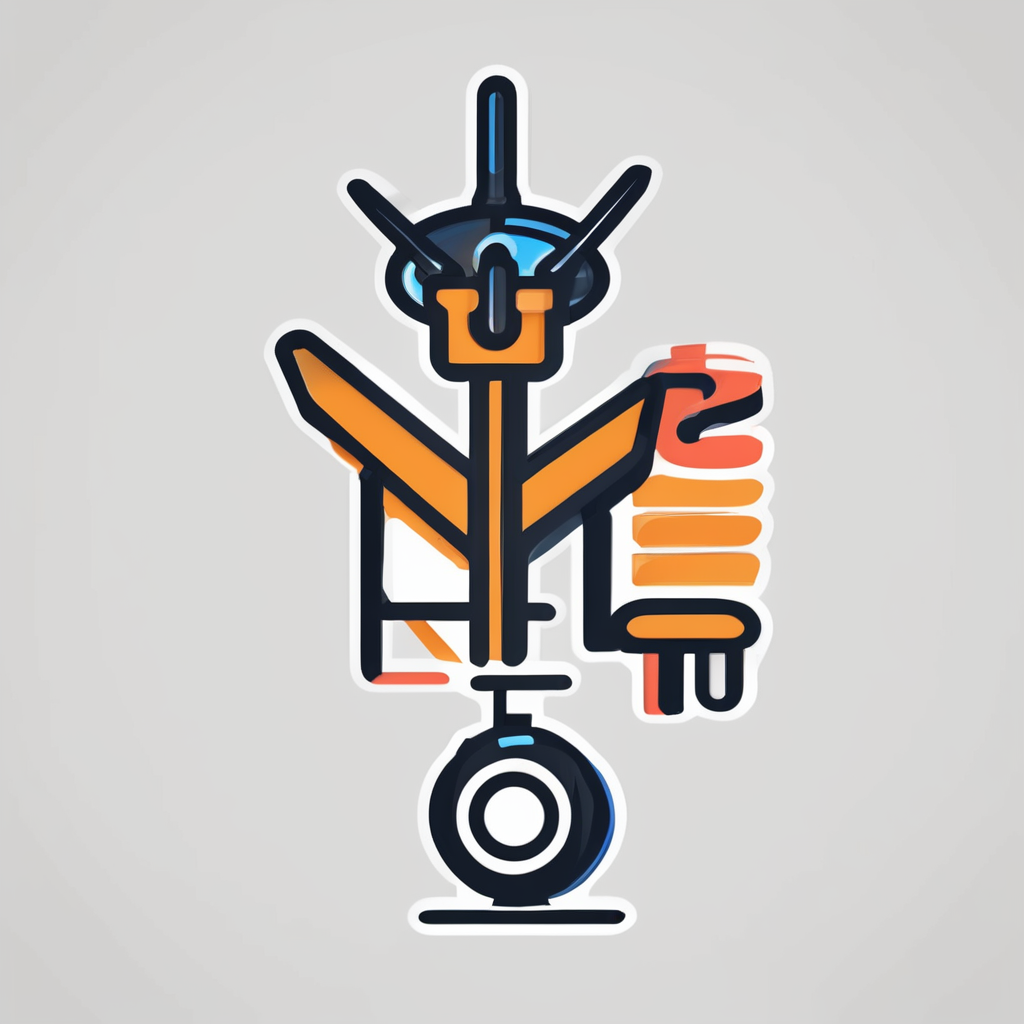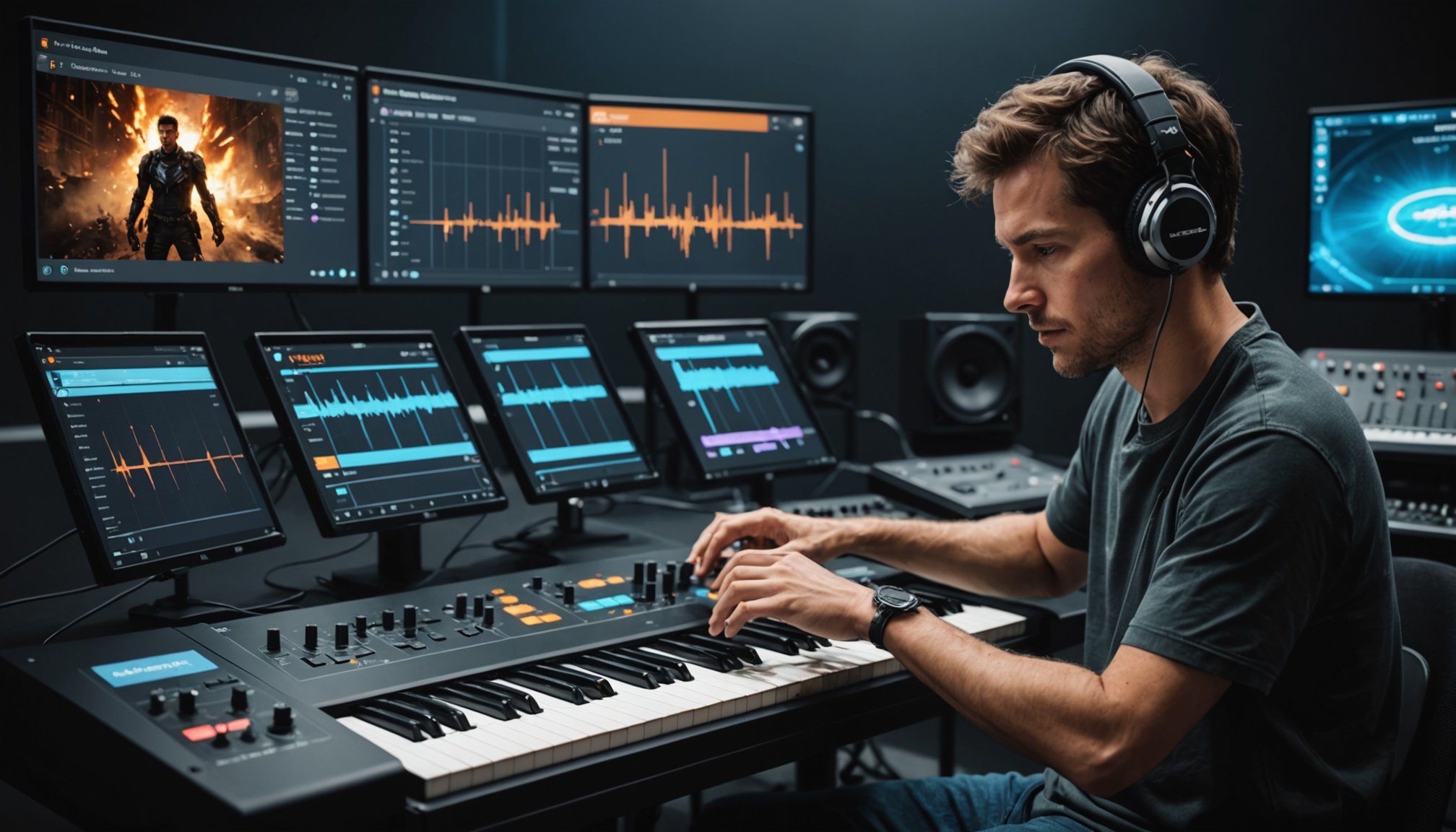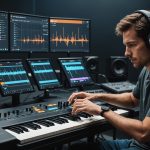Understanding AI in Rhythm Gaming
AI technology has become a transformative element in rhythm gaming, driving enhanced player experiences. Central to this advancement are adaptive music scores, which tailor soundtracks to players’ performances, thus elevating engagement levels.
Overview of AI Technology in Gaming
In rhythm games, AI technology contributes by analysing real-time player inputs and dynamically adjusting game elements. This enhances gameplay by delivering music that matches the player’s pace and skill, ensuring a challenging yet enjoyable experience. Players feel more connected to the game, as the music seems to be an extension of their actions.
Also to see : Revolutionizing RPGs: Harnessing Machine Learning for Stunning Facial Animation Innovations
Adaptive Music Scores Explained
Adaptive music scores are pivotal in bridging player actions with immersive soundscapes. By utilising algorithms, these scores adjust tempo, instrumentals, and rhythm based on in-game player behaviours. This seamless shift fosters a bespoke, interactive audio environment, which can react instantaneously to successes or failures.
Benefits of Personalized Soundtracks for Players
Personalised soundtracks offer numerous benefits, such as increased focus and motivation. They create a unique gaming scenario each session, driven by AI’s ability to adapt and evolve. Players often report heightened emotional responses and a deeper connection to rhythm games, due to the tailored auditory experience.
Also to read : Endless Urban Design: Unlocking the Power of Procedural Generation in Contemporary City-Building Games
Examples of Games Utilizing Adaptive Music Scores
Adaptive music games, hailed for their innovative approaches, have redefined the rhythm gaming landscape. These AI-driven soundtracks offer a novel experience, seamlessly merging player actions with musical progression.
Game Title and Features
“Beat Saber,” a pioneer in adaptive music gaming, utilises AI to synchronise virtual reality interactions with music beats. Players wield lightsabers, slicing through rhythm-matched obstacles, creating a unique engagement. “Thumper,” another title, offers a high-intensity experience with its “rhythm violence.” It dynamically alters beats as players navigate cosmic tracks, emphasising the synergy between gameplay and sound.
Game Title and Features
“Fuser,” distinctively lets players craft their own musical landscape. By mixing tracks in real-time, players enjoy an adaptive music score that evolves with their style. This interactivity encourages creativity, pushing the boundaries of traditional rhythm games.
Game Title and Features
“Crypt of the NecroDancer” integrates AI-driven music with dungeon crawling. Players move and fight to adaptive beats, which influence strategy and gameplay. This blend of genres showcases the power of AI technology in enhancing rhythm gaming with unique, engaging experiences. Such games stand apart by prioritising interaction and individual contributions, proving that music can indeed lead gameplay.
User Testimonials and Experiences
In exploring the vibrant world of rhythm gaming, the community’s voice is crucial. Real user experiences highlight the transformative impact of AI-powered adaptive music scores. Players often share that these innovative rhythm games deliver an engaging and immersive feel unlike any other.
Comparison to Traditional Rhythm Games
A striking distinction emerges when comparing adaptive music games to their more traditional counterparts. Users frequently note a greater emotional connection owing to the tailored audio experience. Traditional games, while entertaining, often follow a static music script, leading to predictable patterns.
Gameplay Enjoyment and Personalized Soundtracks
Personalization is pivotal in shaping gameplay enjoyment. Player testimonials reveal how AI-driven soundtracks have breathed new life into rhythm games, making each session unique. The adaptive nature of these musical experiences keeps users returning for the dynamic challenges they present.
Insights from the Community
The community’s voices underline the profound influence that user experiences have on enjoyment levels in rhythm games. Feedback consistently points out how AI-enhanced soundscapes offer an immersive edge, increasing overall satisfaction and creating a memorable gaming adventure for rhythm enthusiasts.
Comparing Traditional Rhythm Games with AI-Enhanced Experiences
Traditional rhythm games and AI-enhanced rhythm games offer distinct experiences, shaped by their gameplay mechanics. While traditional games often rely on pre-set tracks with limited adaptability, AI-powered games introduce dynamic elements by responding to player interactions, elevating the challenge and engagement.
Key Differences in Gameplay Mechanics
In traditional rhythm games, players typically follow a static sequence of beats, which can become predictable over time. In contrast, AI-enhanced games adjust the rhythm and tempo based on player performance. This adaptability creates fresh challenges, fostering a more engaging experience. The AI technology doesn’t just follow a script; it actively shapes each session, offering continuous novelty.
Soundtrack Adaptability and Player Feedback
AI-enhanced games utilise adaptive music scores, turning soundtracks into living entities that evolve with player actions. Users report a heightened sense of agency, as their input directly influences auditory feedback, improving the connection between action and outcome.
Overall Gaming Experience and Satisfaction
Overall, players often find AI-driven soundtracks enrich their gaming adventure, promoting a stronger emotional bond. The personalised soundscapes contribute to a unique auditory journey, making each gameplay session distinct and memorable. Traditional rhythm games, by contrast, may lack this dynamic unpredictability, potentially affecting long-term player satisfaction.











